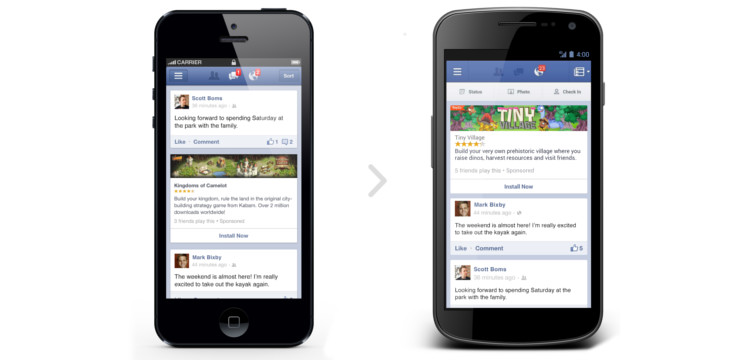Facebook Forces Some Employees to Switch to Android

Toggle Dark Mode
The iPhone has become so popular among Facebook employees that Facebook’s Chris Cox is reportedly forcing some employees to make the switch over to Android.
Of course, there’s a reason behind employees having to make the switch – while Apple might be more popular among the well-paid engineers over at Facebook, the vast majority of smartphone owners in the world use Android devices, largely because of the fact that there are many inexpensive Android phone models available today.
 Photo: K?rlis Dambr?ns
Photo: K?rlis Dambr?ns
“I am mandating a switch of a whole bunch of my team over to Android, just because people, when left up to their own devices, will often prefer an iPhone,” said Cox in an interview with reporters. According to Cox, the goal for Facebook developers is “that they can be reporting bugs and living in the same experience that most Facebook users experience today.”
This, of course, makes sense. Companies like Facebook and Google have begun making a push into developing markets of late, aiming to connect the rest of the world and offer them the tools that they need to participate in the international world that we live in. Whether we like it or not, Apple iPhones currently don’t come cheap – although there are rumors about the relaunch of the “c” series with the iPhone 6c – and Android devices generally have a wider range of prices, with many companies building their own Android smartphones. Facebook will need to focus more and more on tailoring its software to those who don’t necessarily own the most advanced smartphones in the world.
 Not only are some employees being directed to use Android phones, but Facebook is also announcing a new initiative called “2G Tuesdays,” where employees, for one hour each Tuesday, will be able to limit how fast their Internet speeds are to 2G, offering them the chance to see how billions of people in the developing world access the Internet.
Not only are some employees being directed to use Android phones, but Facebook is also announcing a new initiative called “2G Tuesdays,” where employees, for one hour each Tuesday, will be able to limit how fast their Internet speeds are to 2G, offering them the chance to see how billions of people in the developing world access the Internet.
This initiative comes at a time when millions of people are getting connected in the developing world. However most of these people are connecting using 2G networks, using which can take minutes to download one single web page. As a social media network, Facebook wants to ensure that its users can download pages quickly, even on 2G connections.
While it could be argued that Apple has largely resisted the urge to cater to the budget-minded among us, it would be surprising if this held out for much longer. Apple is reportedly planning on building a smaller, cheaper iPhone with some rumors suggesting that this phone might even be released before the holiday season.
The device will likely be similar to the iPhone 5c, having a cheaper build, a 4-inch display, an older processor, and less storage. This doesn’t mean, however, that it would be a low-powered device, and many will be excited at the chance to trade in some power to be able to afford an Apple phone.
Of course, offering a lower-cost phone and offering a phone that those in the developing world are able to afford, are two very different things. In order for Apple to compete in the developing world, it will need to release devices that steer clear of the $200 mark.
To ensure the device stays as cheap as possible, Apple will likely keep the camera at 8MP rather than the new 12 featured on the iPhone 6s and iPhone 6s Plus. It will also probably stay at 1GB of RAM.
While Apple would be able to offer a device like this extremely cheaply, the real question is whether or note it will. While we all love Apple products, they certainly don’t come cheap. People are willing to pay for a premium product, but the ability to pay for a premium product is a luxury in itself. The iPhone 6s starts at $649 for the unlocked 16GB version, with the iPhone 6s Plus starting at $749 for the unlocked 16GB version.
While Cox’s mandate might come off as anti-Apple, it’s important to remember who is using Facebook and that Facebook wants to keep its app as bug-free as possible. Only time will tell if the mandate yields better results for the Facebook app, however it’s likely that those employees aren’t too happy about it.






